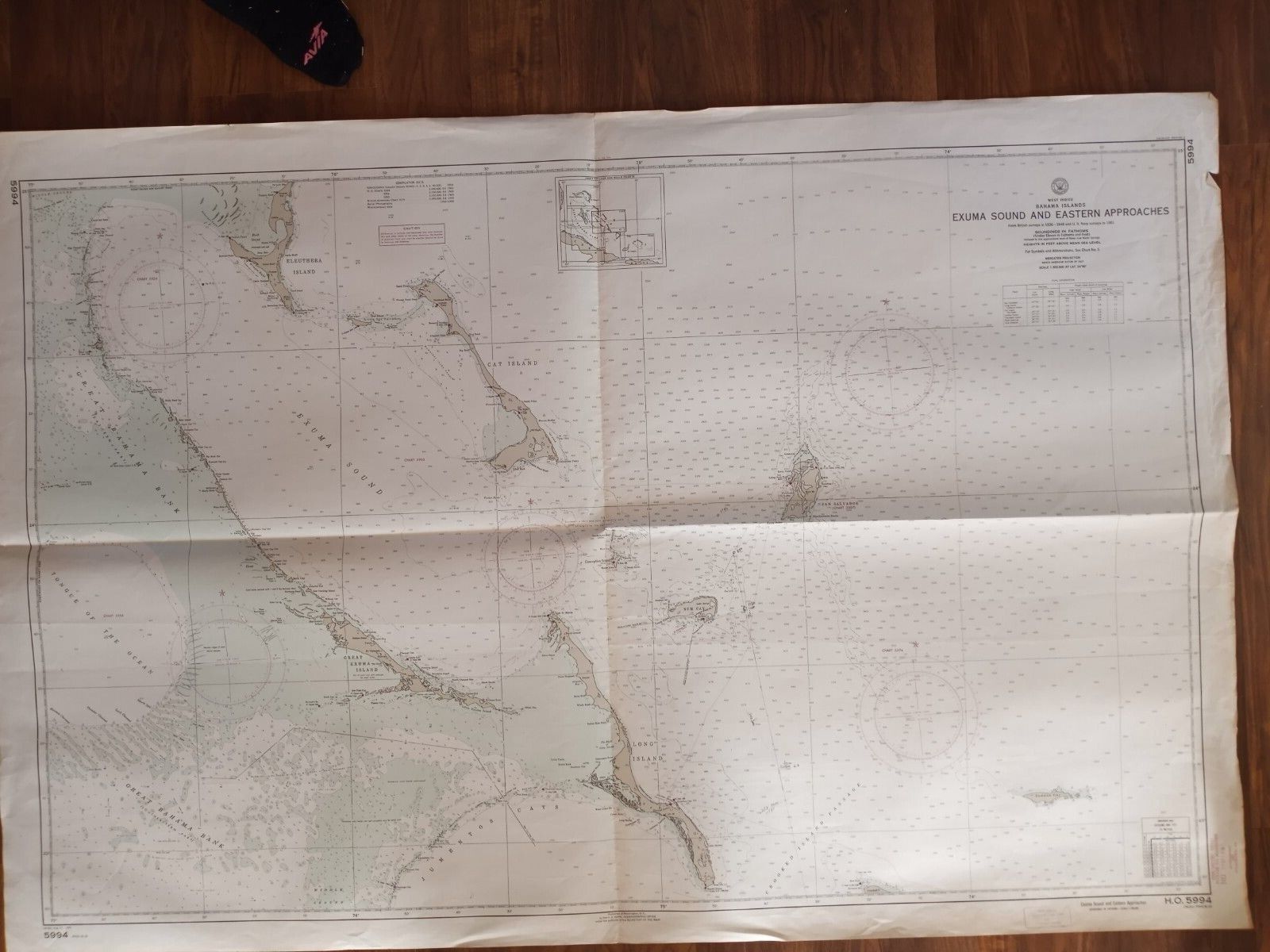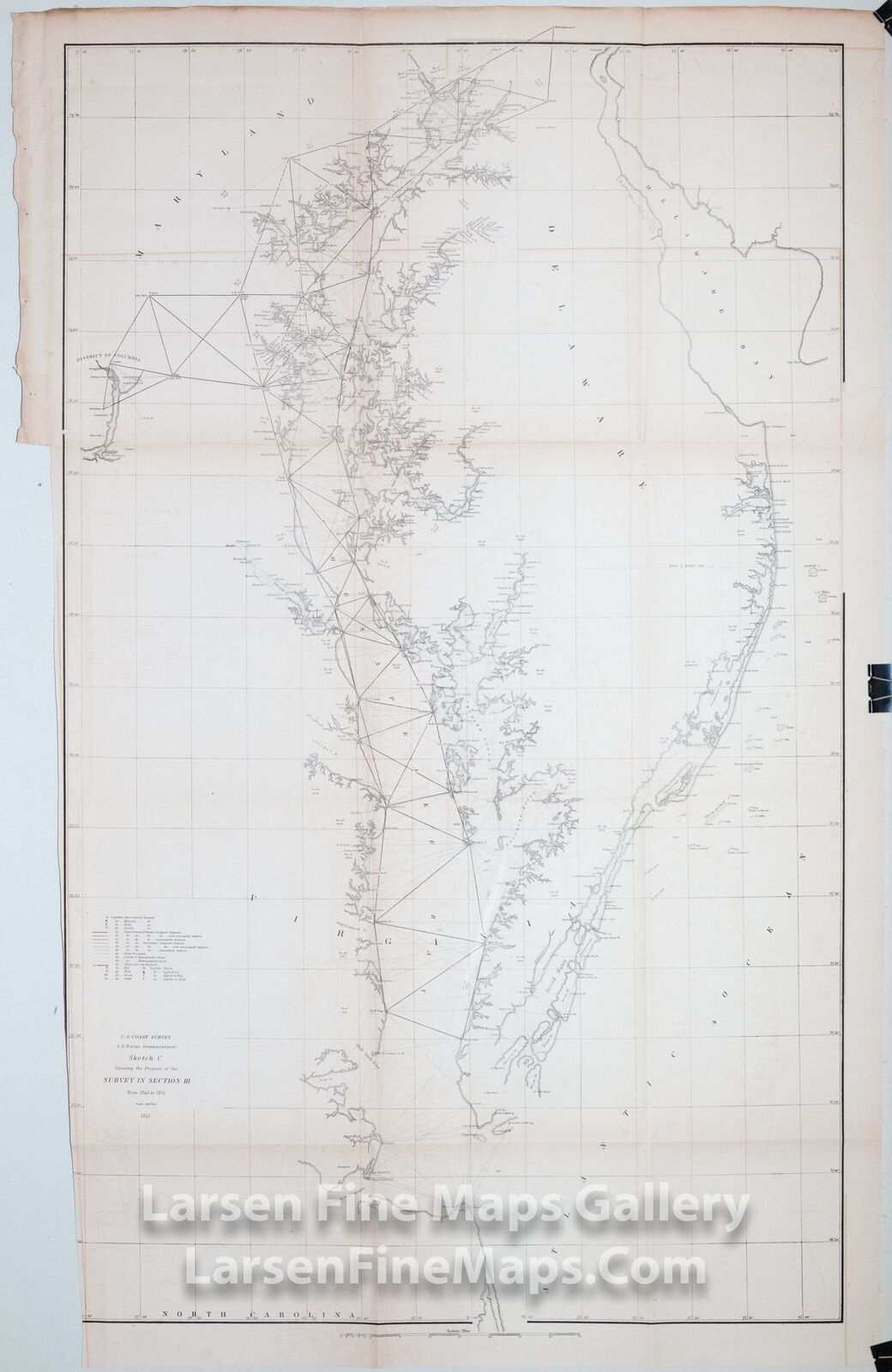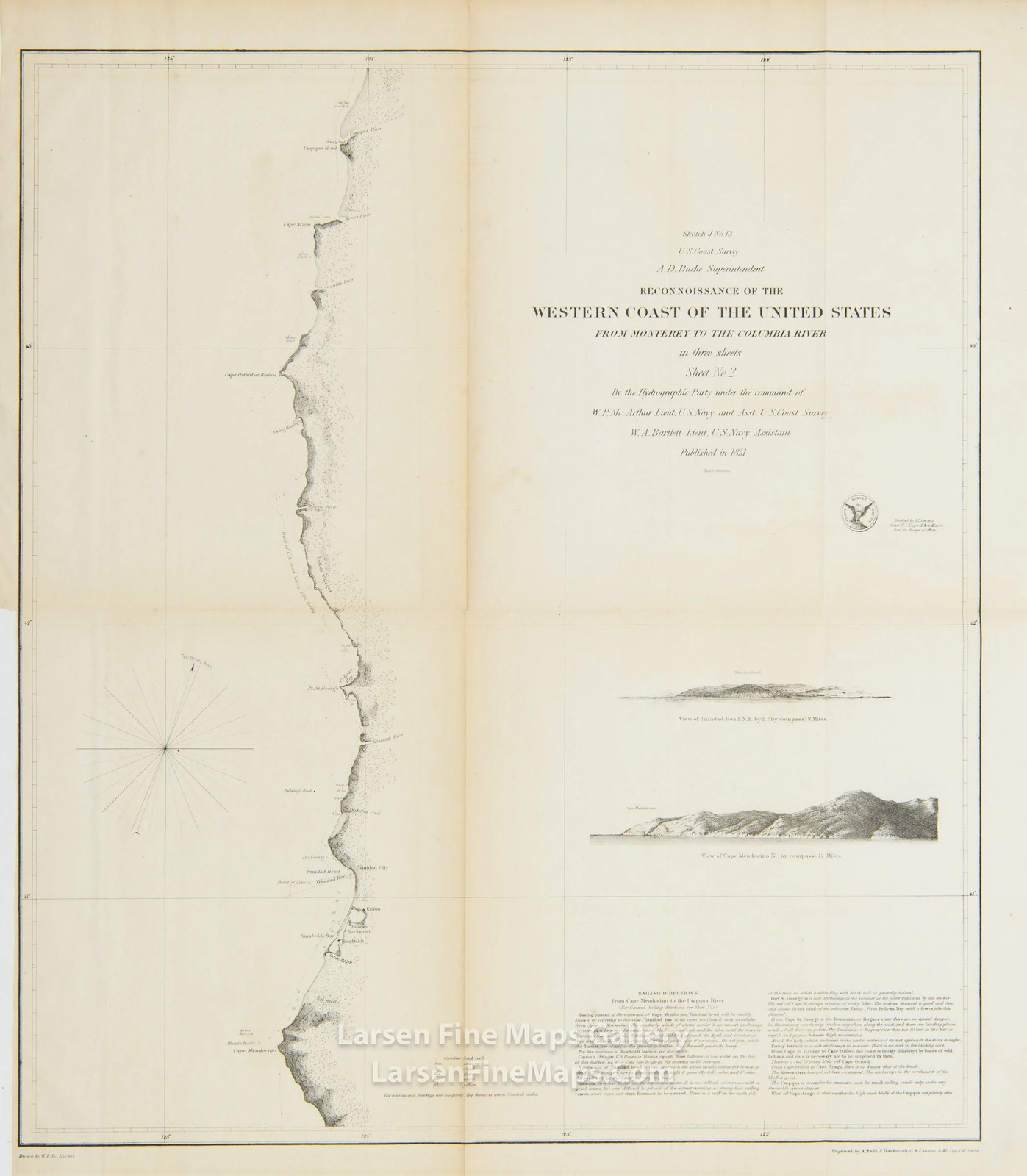-40%
ORIGINAL ANTIQUE MAP NAUTICAL CHART Bahama Islands Exuma Sound Eastern Approach
$ 97.68
- Description
- Size Guide
Description
ANTIQUE ORIGINAL MAPTERRITORY NAUTICAL CHART[Thismap is not a reproduction or from a scan, and it's printed on a thick papermatting surface. My Map collection, passed down by my grandfather, has beenstored flat and folded]
West Indies Bahama Islands
Exuma Sound and Eastern Approaches
Eleuthera Island, Little San Salvador, Sand Point, Bennetts Harbour, Cat Island, Sandy Point, Hawks Nest Point, Beacon Cay, Norman Spit, Bells Island, Great Exuma Island, Jumentos Cays, Tongue of the Ocean, Samana Cay
See Photos for condition.
Eleuthera
(
/
ɪ
ˈ
lj
uː
θ
ər
ə
/
) refers both to a single island in the
archipelagic state
of
The Commonwealth of the Bahamas
and to its associated group of smaller islands.
[1]
Eleuthera forms a part of the
Great Bahama Bank
.
[1]
The island of Eleuthera incorporates the smaller Harbour Island. "Eleuthera" derives from the feminine form of the
Greek
adjective
ἐλεύθερος
(
eleútheros
), meaning "free".
[2]
Known in the 17th century as
Cigateo
, it lies 80 km (50 miles) east of
Nassau
. It is long and thin—180 km (110 miles) long and in places little more than 1.6 km (1.0 mile) wide. Its eastern side faces the Atlantic Ocean, and its western side faces the
Great Bahama Bank
. The topography of the island varies from wide rolling pink sand beaches to large outcrops of ancient coral reefs, and its population is approximately 11,000. The principal economy of the island is tourism.
The Bahamas
(
/
b
ə
ˈ
h
ɑː
m
ə
z
/
(
listen
)
), officially the
Commonwealth of The Bahamas
, is a country within the
Lucayan Archipelago
of the
West Indies
in the
Atlantic
. It takes up 97% of the Lucayan Archipelago's land area and is home to 88% of the archipelago's population. The
archipelagic state
consists of more than 3,000
islands
,
cays
, and
islets
in the Atlantic Ocean, and is located north of
Cuba
and northwest of the island of
Hispaniola
(split between
Haiti
and the
Dominican Republic
) and the
Turks and Caicos Islands
, southeast of the
US state
of
Florida
, and east of the
Florida Keys
. The capital is
Nassau
on the island of
New Providence
. The
Royal Bahamas Defence Force
describes The Bahamas' territory as encompassing 470,000 km
2
(180,000 sq mi) of ocean space.
The
West Indies
is a
subregion
of
North America
, surrounded by the
North Atlantic Ocean
and the
Caribbean Sea
that includes 13 independent
island countries
and 18
dependencies
and other territories in three major
archipelagos
: the
Greater Antilles
, the
Lesser Antilles
, and the
Lucayan Archipelago
.
[4]
The subregion includes all the islands in the
Antilles
, plus
The Bahamas
and the
Turks and Caicos Islands
, which are in the
North Atlantic Ocean
. Nowadays, the term West Indies is often interchangeable with the term
Caribbean
, although the latter may also include some Central and South American mainland countries which have Caribbean coastlines, such as
Belize
,
Guyana
,
Suriname
and
French Guiana
, and the Atlantic island nations of
Trinidad and Tobago
and
Bermuda
, both of which are geographically distinct from the three main island groups, but culturally related.
Exuma
is a
district of The Bahamas
, consisting of over 365 islands, also called
cays
.
The largest of the cays is Great Exuma, which is 37 mi (60 km) in length and joined to another island, Little Exuma, by a small bridge. The capital and largest town in the district is
George Town
(population 1,437).
[1]
It was founded 1793 and located on Great Exuma. Near the town, but on Little Exuma, the
Tropic of Cancer
runs across Pelican Beach lending it another name: Tropic of Cancer Beach. Its white sand and turquoise waters make it a world-famous destination. The entire island chain is 130 mi (209 km) long and 72 sq mi (187 km²) in area.
[2]
[3]
Great Exuma island has an area of 61 sq mi (158 km²) while Little Exuma has an area of 11 sq mi (29 km²).
[4]
Between 2000 and 2010, the population of Exuma more than doubled, reflecting the construction of large and small resort properties and the related direct air traffic to Great Exuma from locations as distant as
Toronto, Ontario
, Canada. The population in 2010 was 6,928.
[1]
Samana Cay
is a now -uninhabited island in the
Bahamas
believed by some researchers to have been the location of
Christopher Columbus
's first landfall in the Americas on October 12, 1492.
[1]
It is an islet in the eastern Bahamas, 22 miles (35 km) northeast of
Acklins Island
. About 10 miles (16 km) long and up to 2 miles (3 km) wide with an area of about 17 square miles (45 km
2
) it is bound by reefs. The verdant cay has long been uninhabited, but figurines, pottery shards, and other artifacts discovered there in the mid-1980s have been ascribed to
Lucayan Indians
, who lived on the cay around the time of Columbus's voyages.
The indigenous people of the island on which Columbus first landed called it "
Guanahani
." Samana Cay was first proposed to be Guanahani by
Gustavus Fox
in 1882,
[2]
but the predominant theory gives the honour to
San Salvador Island
.
[3]
However, in 1986,
Joseph Judge
of
National Geographic Magazine
made different calculations based on extracts from Columbus's logs and argued for Samana Cay as the location, but his methodology has also been criticised.
[4]
Samana
was a name of apparent Lucayan origin (meaning "Small Middle Forest") used by the Spanish to designate one of the islands in the Bahamas. Granberry and Vesceliuus identify that island as the present-day Samana Cay.
[5]
Samana Cay had a permanent population during the first half of the 20th century, and the ruins of the settlement are visible on the south side of the island, near the western end. The island is now uninhabited, but residents of nearby
Acklins
Island visit occasionally to collect
cascarilla
bark, which grows in abundance on the island.


















